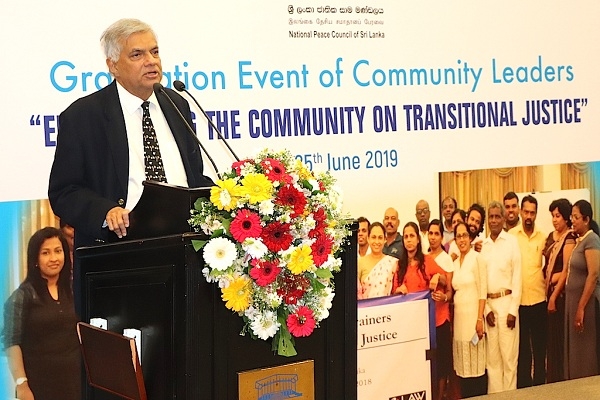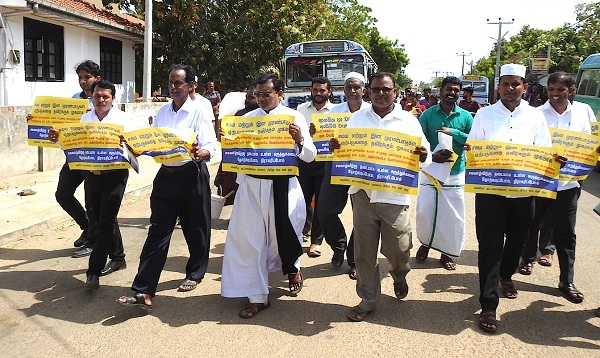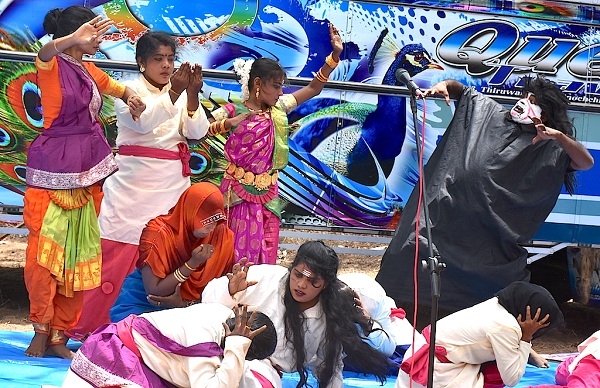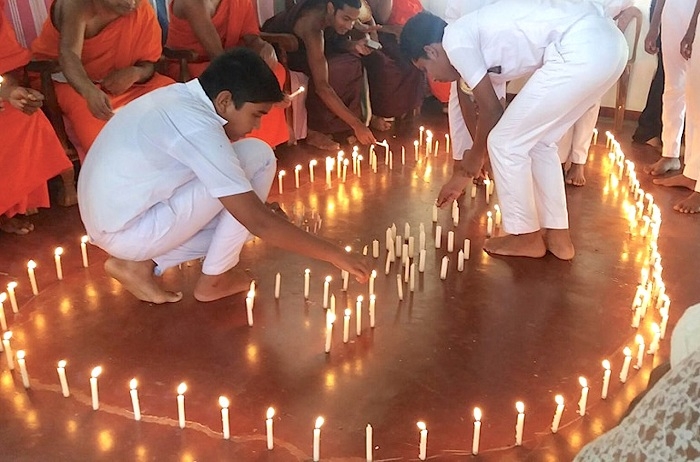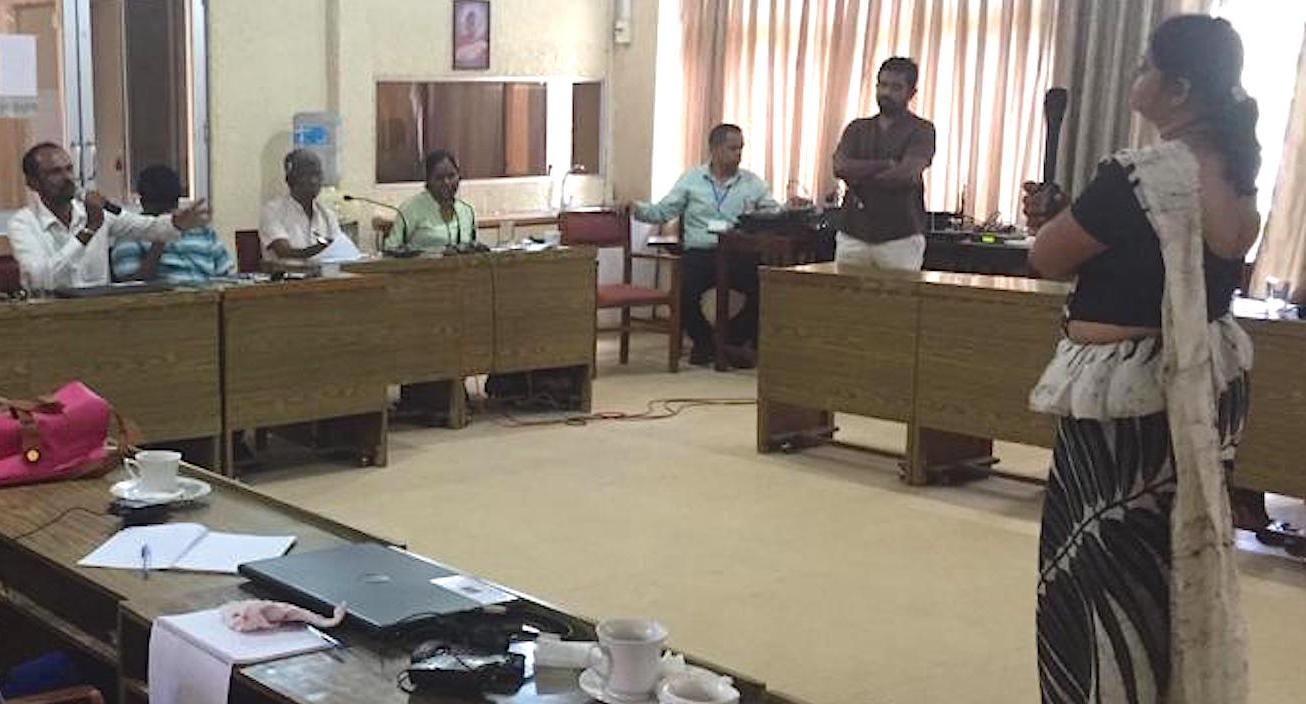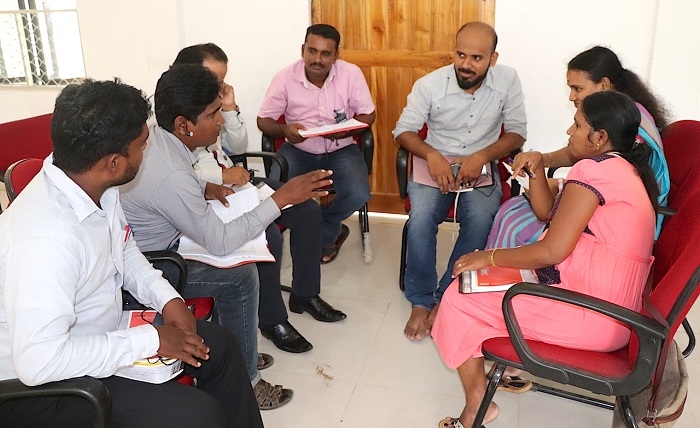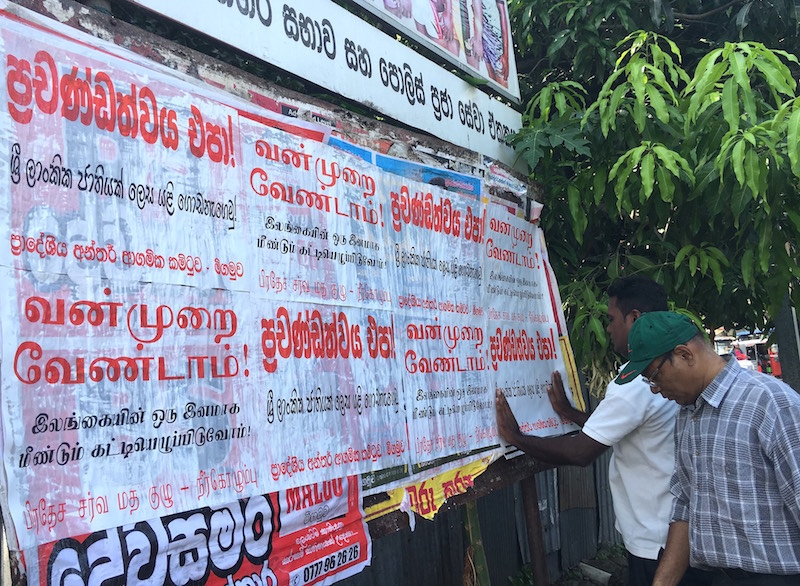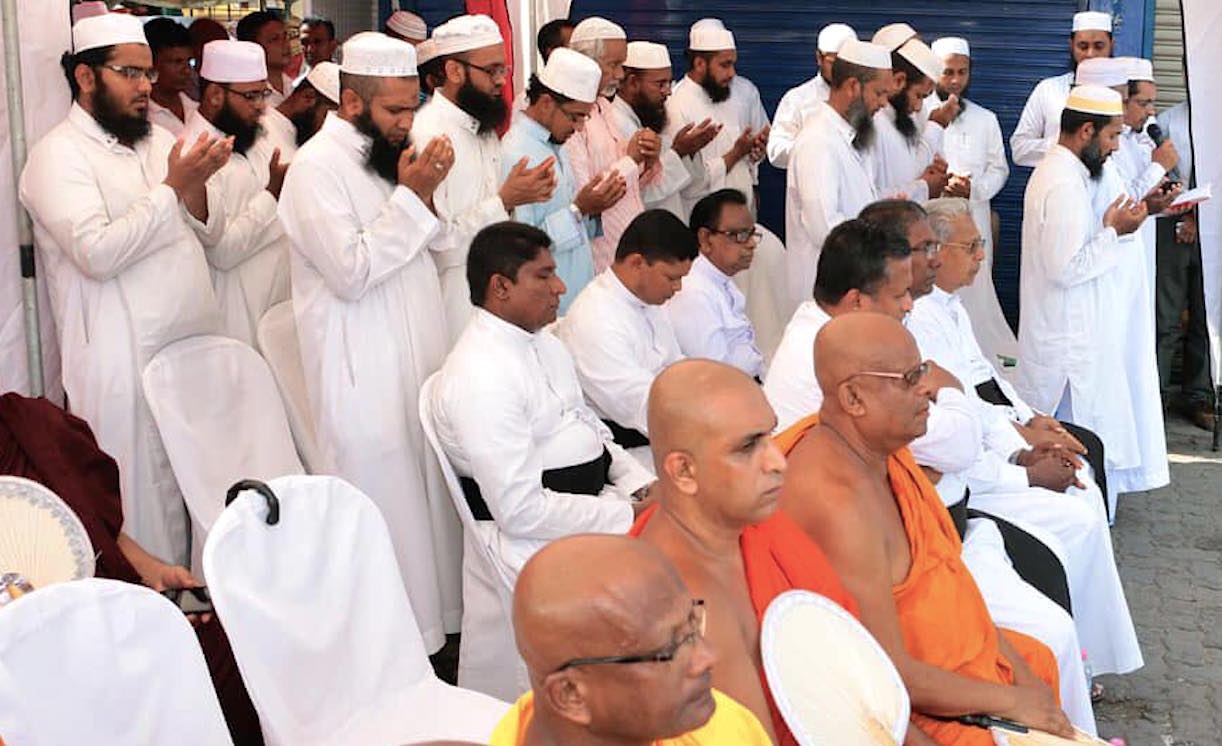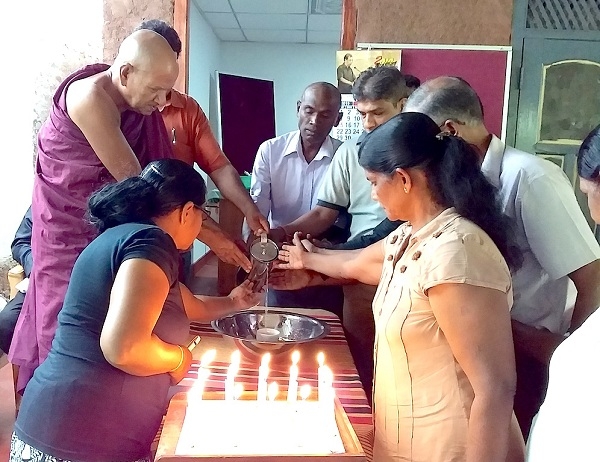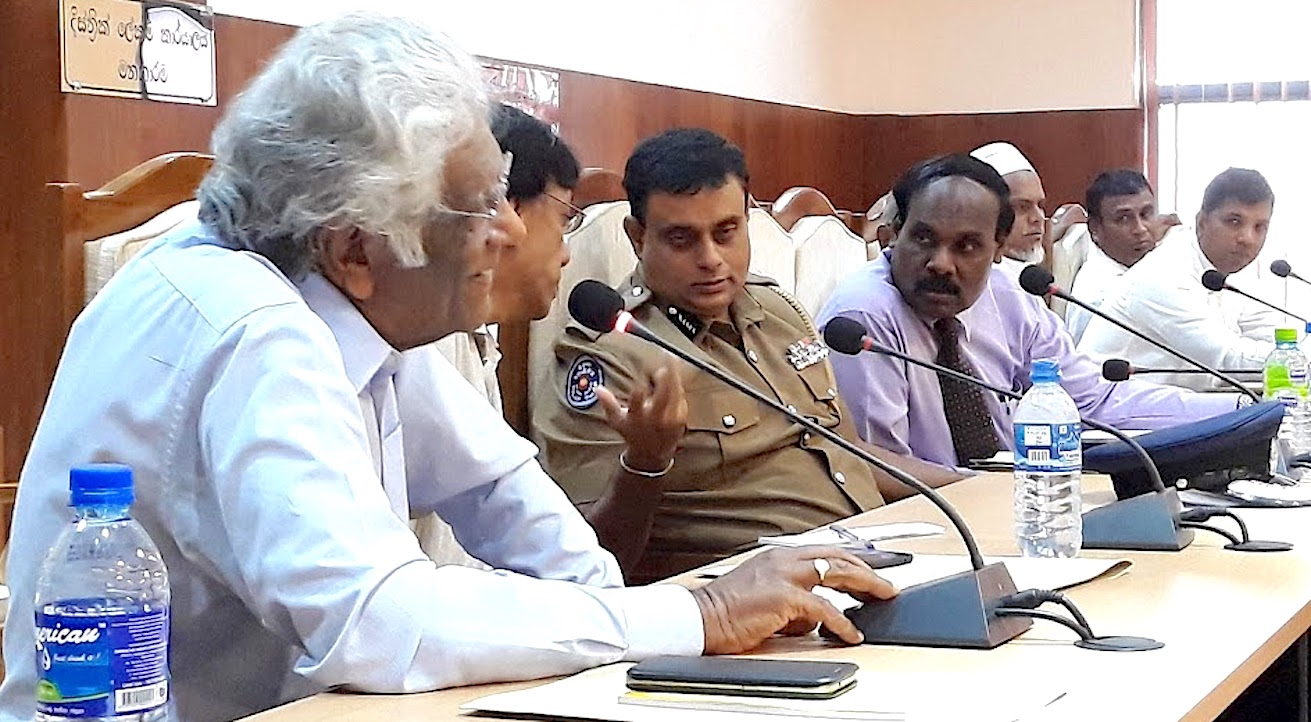Prime Minister Ranil Wickremesinghe stressed the importance of Transitional Justice (TJ) in Sri Lanka’s reconciliation process and pointed out that each country had its own unique course to follow. He praised NPC’s efforts towards furthering awareness of TJ and added that the government was taking steps to establish an inter faith reconciliation council made up of religious leaders.
News
Members of Kandy District Inter Religious Committee (DIRC) handed over the report of its Truth Finding Citizen’s Commission on the Kandy anti-Muslim riots that took place in Digana in March last year to Prime Minister Ranil Wickremesinghe.
Several training programmes were conducted for government officers, local government representatives and Grama Niladharis under NPC’s project the Social Cohesion and Reconciliation Activity (SCORE), which is funded by USAID and conducted in partnership with Global Communities.
Kandy District Inter Religious Committee (DIRC) moved swiftly to diffuse tension caused by a dispute over the wearing of the hijab by teachers in a Kandy girls’ school.
Several activities including peace walks, advocacy and poster campaigns and meetings with Muslim religious leaders were held in many areas around the country under NPC’s project, Collective Engagement for Religious Freedom (CERF). The activities were carried out by Local Inter Religious Committees (LIRCs) formed under the project.
An activity to promote community engagement and strengthen reconciliation to enhance knowledge on Transitional Justice (TJ) was carried by members of Kilinochchi DIRC, sub group members and peace delegates under NPC’s project Religions to Reconcile: Strengthening Inter-Religious People-to-People Community Engagement for Reconciliation and Social Cohesion in Post-Conflict Sri Lanka (R2R).
Hambantota DIRC organised two public events in Hambantota and Tangalle to remember those who had died in the Easter Sunday attacks one month earlier. Government officials and community police helped to organize the event, where religious leaders prayed for the victims.
A meeting to enhance the knowledge of Human Rights First Aid Coordinators (HRFACs) on human rights, Transitional Justice and the Office on Missing Persons (OMP) was held in Colombo under NPC’s project, Accountability Through Community Engagement and Initiatives for Transition (ACE-IT). Thirty two participants from 11 districts attended the meeting, which was organized in partnership with Right to Life Human Centre (R2L).
NPC conducted a one-day training session on the rule of law for Government officers under NPC’s project, the Social Cohesion and Reconciliation Activity (SCORE), which is funded by USAID and conducted in partnership with Global Communities.
Local Inter Religious Committees (LIRCs) formed under NPC’s project, Collective Engagement for Religious Freedom (CERF), held a range of activities in six districts across the country to defuse tensions in the wake of the Easter Sunday attacks.
Catholics, Buddhists and Muslims, including religious leaders, government officials and police officers, came together in Weligama the day after the Easter Sunday bombings to pray for the victims under NPC’s project, Collective Engagement for Religious Freedom (CERF).
The Centre for Communications Training (CCT) was invited by the District Secretary/Government Agent of Mannar to participate in a meeting convened on the instructions of the Secretary to the Ministry of National Integration, Official Languages, Social Progress and Hindu Religious Affairs.
District Inter Religious Committees (DIRCs) in 15 districts across the country began working immediately after the Easter Sunday bombings to diffuse ethnic tensions and prevent a backlash against the Muslim community.
Under NPC’s project, Consolidating Ongoing Multi-level Partnership Actions for Conflict Transformation (COMPACT) funded by MISEREOR and CAFOD), DIRCs held several awareness meetings, visited government leaders, held press conferences, displayed banners, condoled with relatives of victims and planned future activities.
Over 45 CSO leaders and religious leaders met at NPC to discuss what steps are to be taken as a combined group to address the current situation in the country. NPC will follow up and update the group regularly.
As a first step it was decided to set up five committees for the following actions:
NPC along with its partner the Centre for Communication Training (CCT) visited to Mannar shortly after the Easter Sunday bombing to meet with the District Reconciliation Committee. These were set up two years ago when President Sirisena in his capacity as Minister of National Integration and Reconciliation, got the Cabinet of Ministers to grant approval to establish District Level Reconciliation Committees (DRCs) to address the incidences of inter religious and inter ethnic tensions and to promote national integration and reconciliation in all 25 districts.
Your Excellencies:
We, the undersigned women and men, are members of civil society and are drawn from all religious and ethnic communities. Our common goal has been to advance the political, social and economic and cultural rights of the people by promoting peace, harmony and social justice for all. We have engaged constructively with all governments in the past and will continue do so in this instance.

